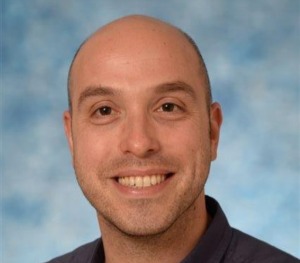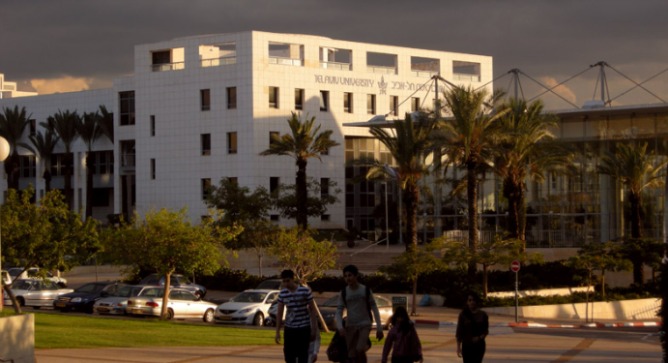Sustainable peace may be the end result, but the purpose was business: Some 30 young Palestinian business leaders completed a mini-MBA course at Tel Aviv University (TAU) last spring.
The program totaled 12 days and was delivered over a couple of months. It gave attendees — aged 25 to 40, mostly interested in technology — access to business school courses in a setting not far from home in the Palestinian Authority-administered territories, where similar opportunities do not yet exist.
Demand was far greater than the number of spots offered, says Mustafa Deeb, a Palestinian who coordinated the project out of the unofficial Palestinian capital, Ramallah, in the West Bank.
The program was designed with TAU and its Kellogg-Recanati Business School professors to “help Palestinians compete on a regional and international level,” Deeb tells ISRAEL21c.
“We call it mini-MBA because if you look at the Recanati program it is a miniature of all the topics they do in two years — strategy, leadership, financing, accounting, marketing and sales — but in12 days only.” The cost of the program was heavily subsidized.
Deeb works for COMPETE, which delivers USAID funds to various projects in the region. Himself an MBA graduate from TAU, he wants people to know that there is fruitful business already happening between Israelis and Palestinians in both the West Bank and the Gaza Strip.
“And in this program it is not about peace, it is about business,” he says. “After all, the purpose behind it is to open the eyes of middle managers and CEOs on how the international business world works. They want to speak the world language to expand [opportunities] with international companies and understand how the market works so they can adapt.”
Quantifying the effect of the program is hard to do. Deeb does know of a company that was successful in securing venture capital funding as a result.
International level business heads talking
The program was run by LAHAV Executive Education and the Kellogg-Recanati Executive MBA program.
LAHAV is the executive education unit of TAU’s faculty of management. The group covers all non-degree courses and sees foreigners swinging in and out of its doors every week.
Sometimes it is the Chinese coming to Israel to learn the country’s secret sauce to being a startup nation. Sometimes there are Indian groups –– and now Palestinian.
A new group of West Bank Palestinians is coming at the end of October for a few days at a time over the course of two months. This time, the focus will be more on the agriculture sector. Business leaders will get seminars on water management, for instance.
Alon Epstein, development manager at LAHAV, promises that they will keep no secrets.

- “It’s the diversity which makes it so interesting,” says Alon Epstein of LAHAV.
“First and foremost, being a startup nation is a cultural thing,” he says. “This is hard to teach but easy to expose. What makes us unique in the cultural sense? We are influenced by the lack of resources we have on one hand, and our harsh environment on the other. We are constantly in a state of struggle, and that makes us think a lot about resources that we don’t have.
“We do have our minds and a sense of innovation, which is tied into the Jewish identity. It is inseparable.”
Getting in touch with startup culture
Israel is not just Jewish, religious or secular — it is also Muslim, Christian and agnostic, Epstein points out.
“It’s the diversity which makes it so interesting. It’s the acceptance of the diversity. … We try to practice what we preach in academia.”
Tel Aviv offers Palestinian business students a learning environment where they do not have to change currency, time zone or cuisine. In fact, Palestinian business leaders tend to have more in common with Israelis than with Germans or Americans.
Yet there are cultural challenges to overcome. “Arabs are more collectivistic rather than individualistic. Free thinking and going against the norms is an issue,” says Epstein.
Politics get left at the door.
“We don’t say a word about politics or geography or religion or culture. We keep it as professional as possible. We expose and proliferate our knowledge for the better good,” he says, adding that the course is beneficial for Israel as well. “Their economic strength and durability and sustainability is a strategic interest of Israel.”
If there are any elephants in the room, they do not get acknowledged. “Our job is to teach innovation and management, and if you come here you are a student just like any other,” says Epstein.
For more information about LAHAV, see http://www.lahav.ac.il/ (in Hebrew only).













